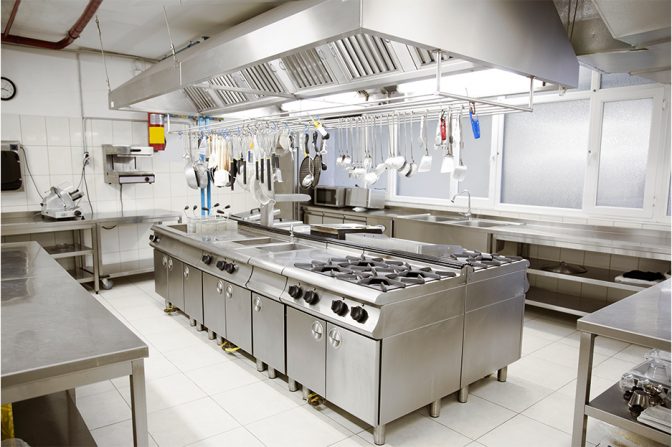12 Sep 2017 2 mins read Tips and Guides

When people think of starting their businesses, they often consider their expertise and areas of interest. The business will invariably succeed if it provides products or services that fill a void. Often, the lure of being their own master makes people consider starting their ventures. They feel that their experience and knowledge will help their venture be successful. But, many entrepreneurs forget that merely possessing sufficient knowledge about their core domain is not the sole requirement for success. Managing a business involves paying attention to each minuscule detail. For instance, you will not solely need to focus on your supply and production chains when manufacturing certain goods. You must manage your accounts, staff and dozens of other essentials.
Similarly, running a commercial kitchen does not only involve obtaining the necessary food products and serving them to your customers. Nor does it only focus solely on purchasing quality appliances such as the SKOPE TME1000 upright (display) fridge. It involves various other aspects too. To run a commercial kitchen, you must typically comply with the local health department regulations. In addition, you will need to follow the prescribed fire safety rules as well. Adhering to these rules will involve adopting certain procedures in your day-to-day operations. This will not only eliminate the hassles of incurring penalties or closures. It will serve to enhance the reputation of your business too.
Commercial kitchens require large equipment such as restaurant refrigeration, ovens, etc. You will need to place these against a long wall area. Similarly, you must place your work tables in the centre of the kitchen. This will enable your workers to avoid commercial deep fryers and freezers. Some aspects that you will need to focus on in a commercial kitchen include:
– The Lighting:
Your cooks will need to have ample light at all times. This would enable them to attend to the minutest details with precision. Proper lighting does not only enhance the ambience of your facility. It can promote higher safety levels too.
– The Sanitation:
For this, you must keep your facility surfaces clean and disinfected. Ensure your staff washes dishes and equipment with a disinfecting solution after use.
– Temperature Control:
The local health authorities typically require owners of commercial kitchens to store potentially hazardous foods at specific temperatures. Such food products could typically include meats, dairy products, beans, rice and cooked vegetables. This will ensure that the food remains fresher for longer. More importantly, it will ensure that the food remains fit for consumption. Investing in the best commercial refrigeration units might be worthwhile in this scenario.
– Fire Safety Rules:
The risk of fire remains ever present in commercial kitchens. These facilities typically feature appliances that consume much power and produce much heat. To eradicate this threat, you must keep your fire extinguishers charged. You will also need to charge the fire suppression features in your ventilation systems. In addition, you will need to clean your ventilation systems at least two to three times a year. This is especially so for appliances that use grease. Besides this, you must ensure that exit points remain easy to access. Similarly, you must ensure that your appliances do not overload your electrical outlets.
We hope you found this article helpful when starting your restaurant or other food business.
For more information about JD Refrigeration installations, repairs or maintenance, please visit the services section of our website or call us in Sydney on 0404 840 296.
